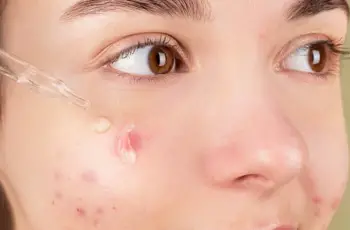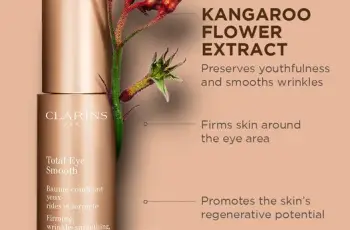
Are Retinol and Retinoids the Same Thing?
Retinoids are scientifically proven and clinically proven to treat common breakouts and minimize signs of aging like fine lines and wrinkles. But they’re also a bit of a mystery because despite being one of the most popular ingredients in skincare, there are still many misconceptions about these powerful benefits. Many people find it too complicated to incorporate into their skincare routine, while others simply don’t know where to start. This is completely understandable, especially since the names retinol and retinoid are often used as if they are interchangeable, when in fact, they are completely different. So, with that in mind, let’s learn more about them and how they actually differ.
What is the difference between retinol and retinoids?
There are some differences between retinol and retinoids, the main difference being the molecular size of these ingredients. For example, the most effective concentrates are prescription retinoids, which are extremely potent and can only be used with the approval of a doctor, dermatologist, or trained professional. These formulas are not available over the counter, and this is where retinols come into play.
Retinol is a form of retinoids, and you can usually find them in a variety of products in stores and online. Although derived from retinoids, over-the-counter product formulas contain other ingredients designed to reduce their effectiveness, allowing your skin to build up a tolerance, making it easier to incorporate into your daily life without causing serious side effects such as redness, rashes, skin problems. Irritation and other reactions often caused by retinoids can occur. However, keep in mind that some of the side effects listed can still occur depending on the formulation, so it is crucial to use the product correctly.
What is a retinoid?
Retinoids are a form of vitamin A that are commonly found in all types of skin care products, sometimes over-the-counter, but more often in prescription products. It is very effective and has a range of skin care benefits, such as fighting acne and problem skin. It does this by exfoliating the outer layer of the skin, removing excess sebum and dead skin cells, which over time can lead to other blemishes such as pimples and blackheads.
Although it is hailed as the most effective ingredient for clearing skin blemishes, it is also widely praised for its ability to reduce signs of aging such as fine lines, wrinkles, and expression lines. It promotes collagen production, making the skin’s surface appear smoother and plumper.
When it comes to retinoids, you can expect the most effective formulas to be available only by prescription. However, there are also multiple forms of retinol available in over-the-counter blends that vary in strength and price range.
What is Retinol?
Retinol is actually a retinoid that is found in over-the-counter products but is easily available online or in select stores. When you incorporate retinol into your skincare routine, you can expect it to provide the same skin benefits as retinoids. You’ll find that retinols are usually found in lower concentrations than the amount of active ingredients found in retinoids. This also means that over-the-counter products are usually easier to incorporate into your daily routine as long as they are used correctly. If you need help clarifying the matter and figuring out how to introduce retinol, you can check out a dedicated blog post on the benefits of retinol in skin care and how it affects your skin.
Due to the lower concentration of retinoids in the formula, you’ll find that over-the-counter products work more slowly on your skin. Keep in mind that different names are listed for types of retinol, such as retinyl palmitate, retinyl linoleate, retinal, retinyl acetate, and propionic acid. You can find all of these ingredients in the ingredient list on the product packaging, and the effectiveness of the concentrate is shown by the time they are listed. Ideally, retinol should appear in the top 5. Keep in mind that over-the-counter products are often mixed with other ingredients, such as hyaluronic acid, to achieve balance and make the formula easier but less effective to apply to the skin.
Are retinoids better than retinol?
Both retinoids and retinol offer similar skin benefits to improve the skin, but come in different concentration levels. This simply gives you the opportunity to find the product that works best for your skin and your daily routine. If you want to get to the heart of the matter and focus only on the ingredients, then retinoids are indeed better than retinol. However, when you consider that retinoids are only available by prescription, you will find that retinols offer the same effects, but are more gentle, and may take several months to show the full results on the skin.
Are retinols weaker than retinoids?
The best way to look at retinoids and retinol is that they are not identical sisters, but cousins. Related, but not identical. If you have severe acne and rashes that require a visit to your primary care physician or dermatologist, you will likely be prescribed a retinoid medication. Because they are standard medical products, concentrates are higher in potency and come to levels that you won’t find over the counter, which technically means that retinols are weaker. However, this doesn’t mean that the products you find with retinol are ineffective, but rather that they are easier to incorporate into your daily routine without having to worry about the formula being too harsh on the skin. Still, retinol is one of the most potent ingredients on the market and must be worked slowly into the skin. I would recommend using it once a week in the evenings at first. This will build up skin tolerance and hopefully prevent skin irritation or flare-ups.
Hopefully, you now know a little more about this admittedly difficult, yet popular skin ingredient. Honestly, it doesn’t matter if you use a retinoid or retinol, just use one or the other. After all, your skin will never look that good! If you have any additional questions about retinol (or retinoids), you can DM me via our Instagram.


